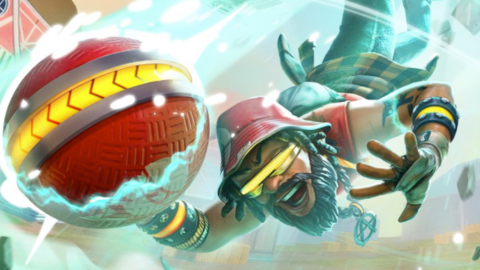Knockout City Dev Explains What Went Wrong

Knockout City, the “dodgebrawl” game from Velan Studios, is coming to a close this June after launching in May 2021. The game didn’t have the long life its developer was hoping for. But what went wrong?
Co-founder Guha Bala told GI.biz that Knockout City hit the ground running with marketing support from publisher EA, solid sales, and a surge in players thanks to its inclusion with Xbox Game Pass. However, a “mid-price premium” business model was “pretty uncommon” for a multiplayer-only title like Knockout City, with many similar titles adopting a free-to-play model instead, Bala said. Knockout City was priced at $20 before it later changed business models.
“So the competitive environment changed for pricing. It sold fairly well but not well enough to as a mid-price premium title to continue to support an additional flow of content,” the developer explained.
In response to these challenges, Knockout City switched to a free-to-play model and ditched EA as a publisher, with Velan taking on the role of self-publisher. But the shift to a free model didn’t create the kind of buzz and revenue that Velan hoped for.
“When we released the free-to-play version, we had a couple different challenges. Some of it was macro and actually can be generalized to all the different games that are shutting down right now,” Bala said.
Indeed, as GameSpot reported previously, the live-service bubble may be bursting, with titles like Knockout City impacted. Bala said economic factors like inflation were “hitting really hard around the world,” especially in East Asia, leaving people spending less money on non-essentials. In the US, Bala observed other macroenomic trends that negatively impacted Knockout City.
“In some places, savings rates had been higher during pandemic and so people were eating into their savings rather than contracting spending, even though inflation was dropping income. We saw that around the US economy and a few others,” Bala said.
But at the end of the day, Knockout City’s business model simply didn’t work out, as Velan wasn’t able to convince players that the game was worth spending time and money on compared to the competition.
“The cosmetics-led games that we know of today and are generally successful, many of them do have loot boxes. Most mobile titles on a global basis, outside of Western markets, also have loot boxes. It’s something that we’re not very fond of, and it’ll present a lot of challenges in an emerging sense from a regulatory standpoint as well. But you can’t have your cake and eat it too,” Bala said. “We have to figure out the right economic balance to be able to do something new and provide something that’s of real value to players, and then have an economic system that works. [The Knockout City] one didn’t.”
Despite Knockout City not working out how Velan might have wanted, Bala said he is hopeful to make a sequel someday. “Of course, that’s not a promise,” the developer added, but it is the hope. For now, Bala said the team is hoping to send Knockout City out with a bang and not a whimper with Season 9.
The products discussed here were independently chosen by our editors.
GameSpot may get a share of the revenue if you buy anything featured on our site.
For all the latest Games News Click Here
For the latest news and updates, follow us on Google News.

